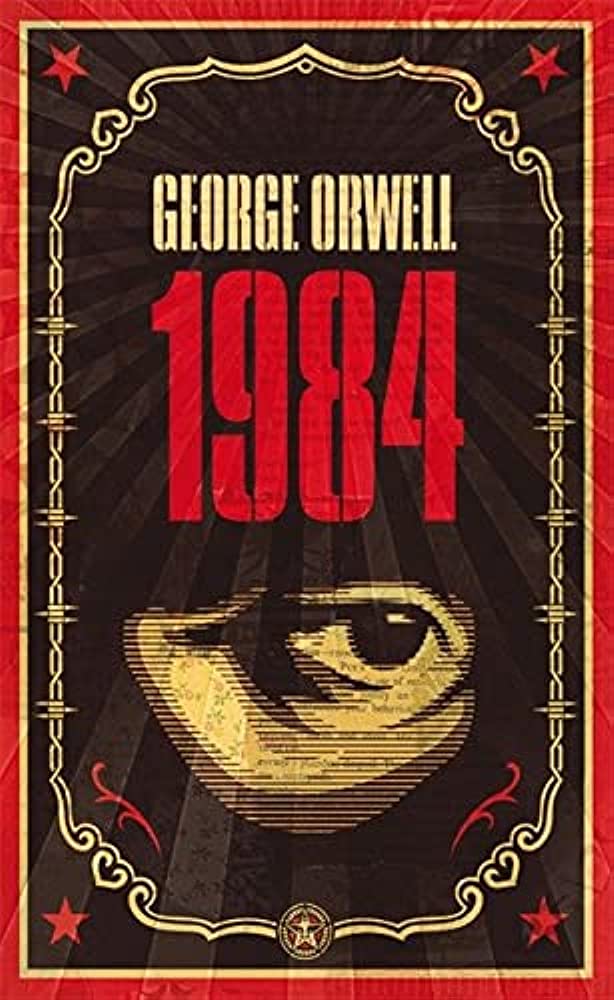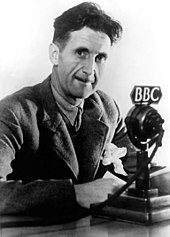SUMMARY

The dystopian novel, 1984, written by George Orwell in 1949, follows Winston Smith, an outer party member in Oceania, a totalitarian superstate who actively brainwashes its citizens into unthinking submission to its leader, Big Brother, in the year 1984. Big Brother’s government has total and complete control over every aspect of people's lives, including their thoughts and actions, through the use of telescreens and controlling history, and his face is splattered everywhere. Furthermore, they have created a new language called Newspeak, which is intended to restrict free thought and promote the Party's ideologies by removing any terminology associated with rebellion. However, Winston questions the government’s motives and has fantasies about rebelling against the party until one day when he decides to take action by secretly buying a diary and writing in it.
AUTHOR'S BIOGRAPHY
Eric Arthur Blair, better known as George Orwell, born in June 25, 1903, Motihari, India, was an English novelist, critic and essayist famous for his novels that critique societies and totalitarian governments, and advocate for social democracy such as 1984 and Animal Farm. (Britannica) Orwell began writing at a young age, writing his first poem at the age of four. At the age of 11, he got his first literary breakthrough when a poem was published in the local newspaper. He later wrote, “I had the lonely child's habit of making up stories and holding conversations with imaginary persons, and I think from the very start my literary ambitions were mixed up with the feeling of being isolated and undervalued." In 1911, Blair started attending St. Cyprian boarding school in the coastal resort of Eastbourne, where he noticed rich students were treated better than poor students. As was not particularly popular with his peers, he took solace from his challenging position and read Rudyard Kipling and H.G. Wells, among other authors. (Biography) However, the best account for his writing would probably be his involvement in the Spanish civil war, as he outlined in Homage to Catalonia, how he worked as a privacy officer in Catalonia and Aragon between 1936 and June 1937, during which he witnessed many things and tasted the horrors of war and totalitarianism that were beginning to resonate throughout Europe as the World War II. (Medium)




